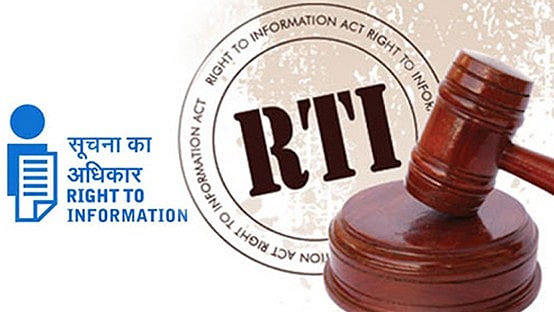
RTI.
Credit: RTI Rajasthan portal
New Delhi: As the Right to Information (RTI) regime completes 20 years in existence on October 12, transparency watchdogs at the Centre and States are plagued with rising pendency of appeals that has now reached 4.13 lakh, functioning of panels crippled by vacancies of Information Commissioners (ICs) and lack of action against officials refusing to provide information citing flimsy grounds.
The Central Information Commission (CIC) itself is headless and functioning with just two ICs while the panels in Jharkhand for over five years and Himachal Pradesh for over three months remain defunct. Karnataka SIC is functioning with eight ICs, including the chief, at present though it has been functioning with just three ICs for several months till January this year.
A ‘Report Card on the Performance of Information Commissions in India 2024-25’ released on Thursday showed that functioning of transparency watchdogs across the country have been crippled with vacancies and is adding to the pendency of appeals and complaints filed. The RTI Bill, which was passed by Parliament on 15 June, 2005, came into force on 12 October, 2005.
According to the report prepared by ‘Satark Nagrik Sanghathan’ (SNS), the CIC and 28 State Information Commissions (SICs) together have a pendency of 4.13 lakh as on June 30 this year with Maharashtra (95,340), Karnataka (47,825) and Tamil Nadu (41,059) topping the list. Maharashtra, presently is working with eight CIC and ICs but for several months prior to April, its strength was four.
Pendency has been increasing over a period of time – it was 2.18 lakh in March 2019 but rose to 2.86 lakh in June 2019, 3.88 lakh in June 2023 and 4.05 lakh in 4.05 lakh. TThe non-appointment of commissioners in a timely manner leads to a large build-up of pending appeals and complaints,” Anjali Bhardwaj and Amrita Johri of SNS said.
An analysis showed Telangana and Tripura SICs are estimated to take the longest time for disposing appeals and complaints, as they were non-functional for several months. It claimed Telangana SIC may take 29 years and two months to dispose of appeals and complaints filed on July 1 while Tripura SIC may take 23 years.
Between July 1 last year and June 30 this year, 2.41 lakh appeals and complaints were registered with CIC and state ICs while 1.82 lakh were disposed of. Maharashtra had registered the highest number of 54,869 appeals and complaints and 38,410 disposed of followed by Tamil Nadu (27,748 and 22,336) and Karnataka (27,490 and 26,802).
One of the disturbing trends cited by the report is the trend of CIC and SICs returning appeals and complaints without passing any order. Of the 51,148 such cases, Maharashtra topped the list at 23,509 followed by CIC (11,993), Bihar (8,729) and Karnataka (4,886). For the calendar year 2024, the report said, CIC website showed that 38% of appeals and complaints were returned.
The report also lamented that the CIC and SICs are reluctant to use the provision of penalising Information Officers for denying information by interpreting the RTI law in a wrong way. The RTI Act empowers the Information Commission to impose penalties up to Rs 25,000 on erring Information Officers for violations of the transparency law.
Only in 1,252 cases, penalties to the tune of Rs 2.32 crore were imposed between July last year and June this year. Chhattisgarh SIC imposed the highest amount of penalty at Rs 1.06 crore in 431 cases followed by Karnataka SIC at Rs 38.11 lakh in 192 cases.
